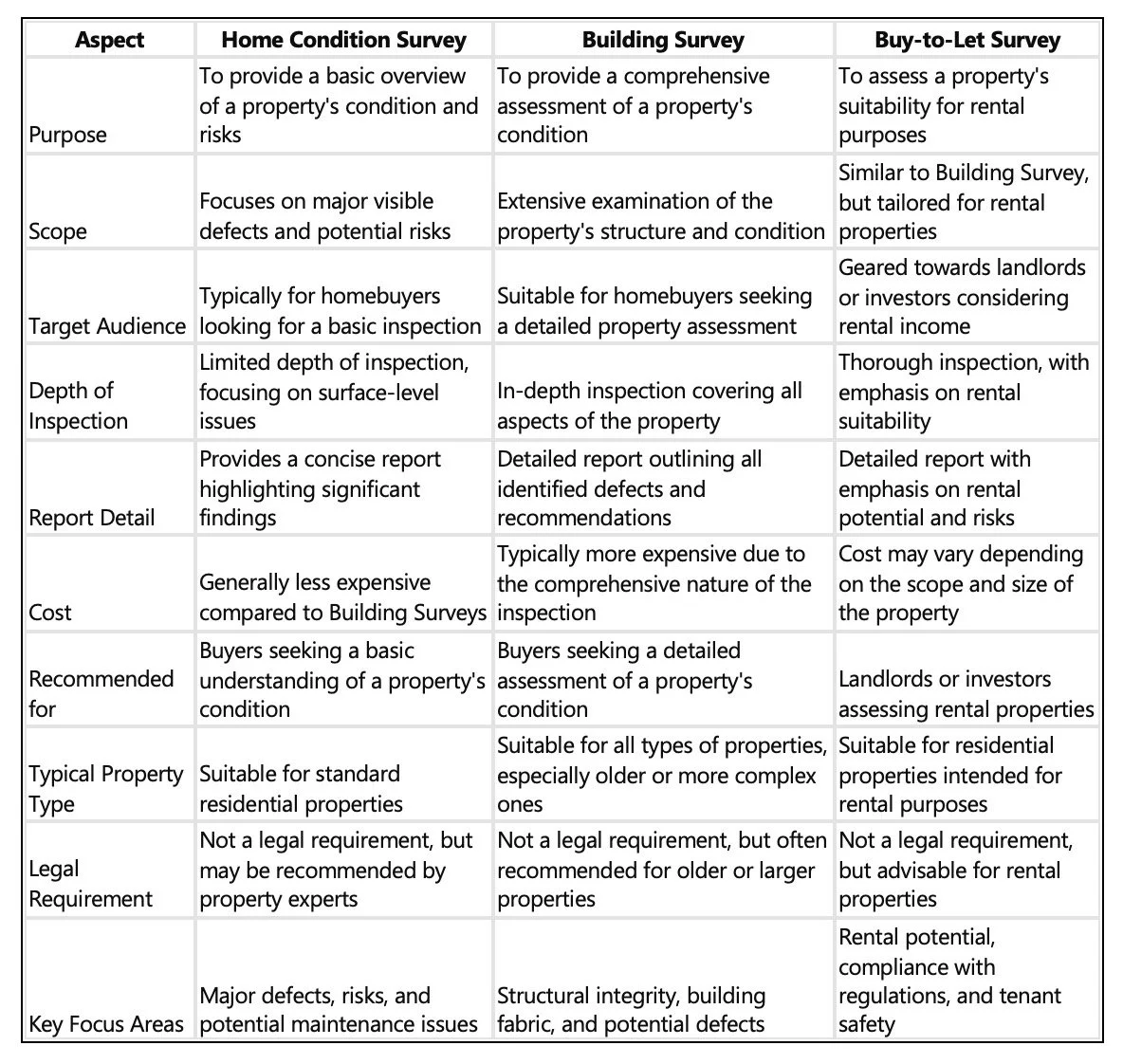
Act on the full information with a
Building Survey
An in-depth examination of the property's structure, fabric, and overall condition.
A building survey is particularly beneficial for older properties, listed buildings, properties in poor condition, or those with unusual features.
A building survey helps potential buyers make an informed decision about whether to proceed with the purchase, renegotiate the price based on any identified issues, or budget for future repairs and maintenance.
The surveyor will assess various aspects of the property, including:
Structural Integrity: The surveyor will inspect the structural elements of the building, such as walls, floors, roofs, and foundations, to check for any signs of damage, subsidence, or structural instability.
Roof Condition: The condition of the roof, including the covering, flashing, guttering, and chimney stacks, will be assessed for any defects or deterioration.
———-
Damp and Moisture: The surveyor will look for signs of dampness, moisture ingress, or condensation within the property, which could indicate underlying issues such as leaks, rising damp, or inadequate ventilation.
Plumbing and Electrical Systems: The surveyor will inspect the plumbing and electrical installations to ensure they are in good working order and comply with current regulations.
Internal and External Features: The surveyor will examine both the interior and exterior of the property, including doors, windows, walls, ceilings, floors, driveways, and garden areas, to identify any defects or maintenance issues.
Recommendations and Advice: Based on their findings, the surveyor will provide a detailed report outlining their observations, highlighting any defects or concerns, and offering recommendations for remedial action or further investigation.
The table below outlines the differences between the surveys offered:
